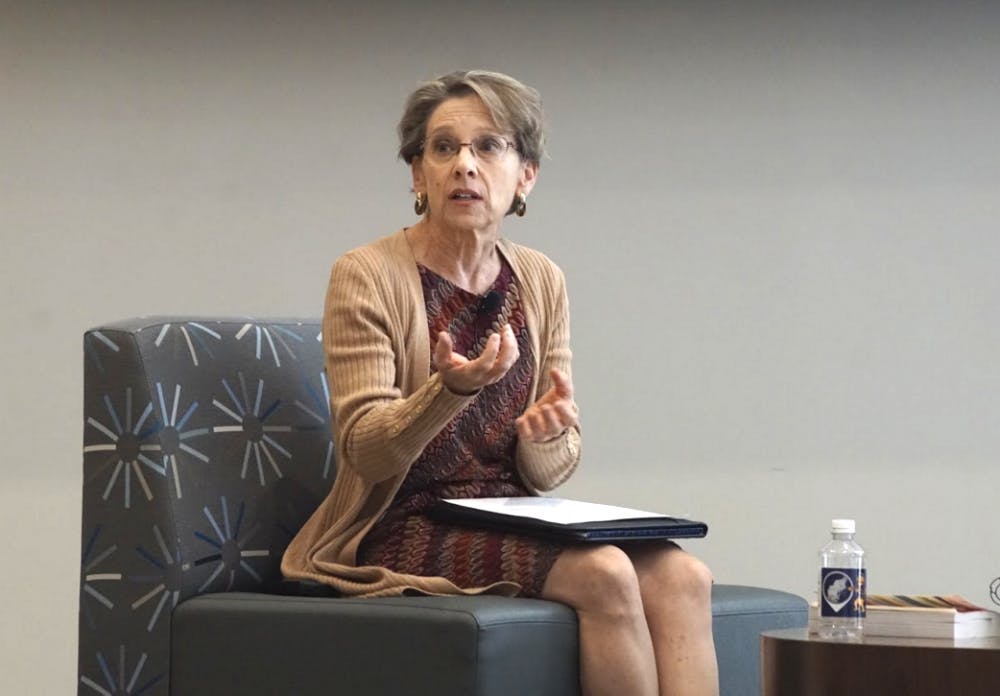By Camille Furst
News Assistant
The Office of Student Diversity and Inclusion hosted “Campus Dialogue Day” on Nov. 14 in the Brower Student Center. The discussion touched on topics such as universal inclusion and implicit bias in the campus community.
This event was held just days before an incident involving racial bias occurred on campus, which stirred controversy among students, faculty and staff alike.

Both College President Kathryn Foster and Lora Fong, the Chief Diversity Officer of the Office of the State Attorney General, spoke at the event.
During the event, the College’s Chief Diversity Officer Kerri Thompson Tillett interviewed Foster about her concept of “universal inclusion” and its connection to the campus community. With this term in mind, she explained the importance of cultivating a community in which every student feels like they belong.
Thompson Tillett expresses her excitement to have this conversation, especially after Foster’s email about universal inclusion at the College was sent out to the campus community.
In her email, Foster emphasized the need for more inclusion both on campus and in the larger community. She strongly urged people to speak out against bullying, discrimination, hateful language, aggression and violence.
Foster’s concept of universal inclusion is rooted in the urban planning concept of universal design, or the idea of designing spaces that accommodate everyone.
“Anyone can function in them,” Foster said. “The mirror, the analogous concept there, would be that … anyone on this campus feels that they belong and the sense of, ‘I can be my best self here.’”
Foster said that she has heard from many students on campus who feel like they don’t belong in the community, and has since been trying to do more to change that notion.
“Every time that happens, it can be heartbreaking,” Foster said. “There’s a lot of dreaming that happens when you come off to college, and to the degree, we can create that kind of community that we all want to be a part of.”
One solution Foster spoke of to help build a more universally inclusive campus community is to ensure that each student’s name is pronounced correctly by his or her professors. This would be done by allowing students to create an audio file of them pronouncing their own name and having it submitted to their professors before the first day of class.
“So then the first day of class comes … and there’s not any moment where the person has that first instance of not belonging,” Foster said. “It’s minor perhaps, but it’s the kind of thing that would make us stand out in a different way.”
Fong then went into discussion about how implicit bias, a subconscious bias toward others, plays a role in everyday society. She gave examples of its occurrence, such as a test in which race played a factor for the employers choosing between two equally qualified candidates for a job position.
As for eradicating bias, both implicit and explicit, Foster suggested that students be more aware of their interactions with each other.
“Part of it is our awareness and our keen sensibility of being in a place,” Foster said. “We’re always going to be a work in progress with this.”
.







